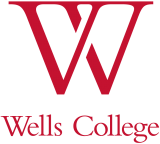Wells' Center for Sustainability and the Environment
Marian Brown, director of the Center for Sustainability and the Environment, frames sustainability as "a decision-making framework for continuous improvement – one that mindfully balances considerations of the environment, society, and the economy." That philosophy guides that the actions of the Center – our efforts are highly applied and anchored in the real world. Learn more about Marian's efforts on her faculty page.
The Center for Sustainability and the Environment has three distinct, yet highly-interconnected areas of focus:
- Academics: The Center supports faculty interested in incorporating sustainability content in courses across disciplines and assists students and their faculty mentors to undertake sustainability-related research projects.
- Operations: The Center works with operational units across campus to further develop the campus as a "living-learning" laboratory that reinforces and models the principles and practices of sustainability that students learn in their coursework.
- Outreach: The Center serves as the hub for programs that engage the college community in co-creating a more sustainable campus environment.
Read the current issue of "Wellspring," the newsletter of the Center for Sustainability and the Environment
What our students do:
Wells' location on Cayuga Lake is an ideal setting for studying the natural world. Additionally, strong student-faculty connections give students the chance to contribute to our scientific understanding of the environment while providing each student the chance to find their own strengths. During the summer of 2014, Associate Professor of Biology Jackie Schnurr and students Kathryn Sweeney '15 and Niaome Hickman '16 performed a study of the development of flowering plants in forested areas of campus. The team established research plots on campus and monitored a number of factors including plant lifespan, seeds produced, and soil conditions. Each student found additional ways to tailor the project to their own interests by developing skills with the statistics and mathematics of the data and taking advantage of the time in the greenhouse to care for the rest of Wells' plants.
Ongoing efforts that students are contributing to include management of the Aurora Farmer's Market, establishment or revitalization of gardens on campus, drives to improve waste collection and recycling on campus, and more.

